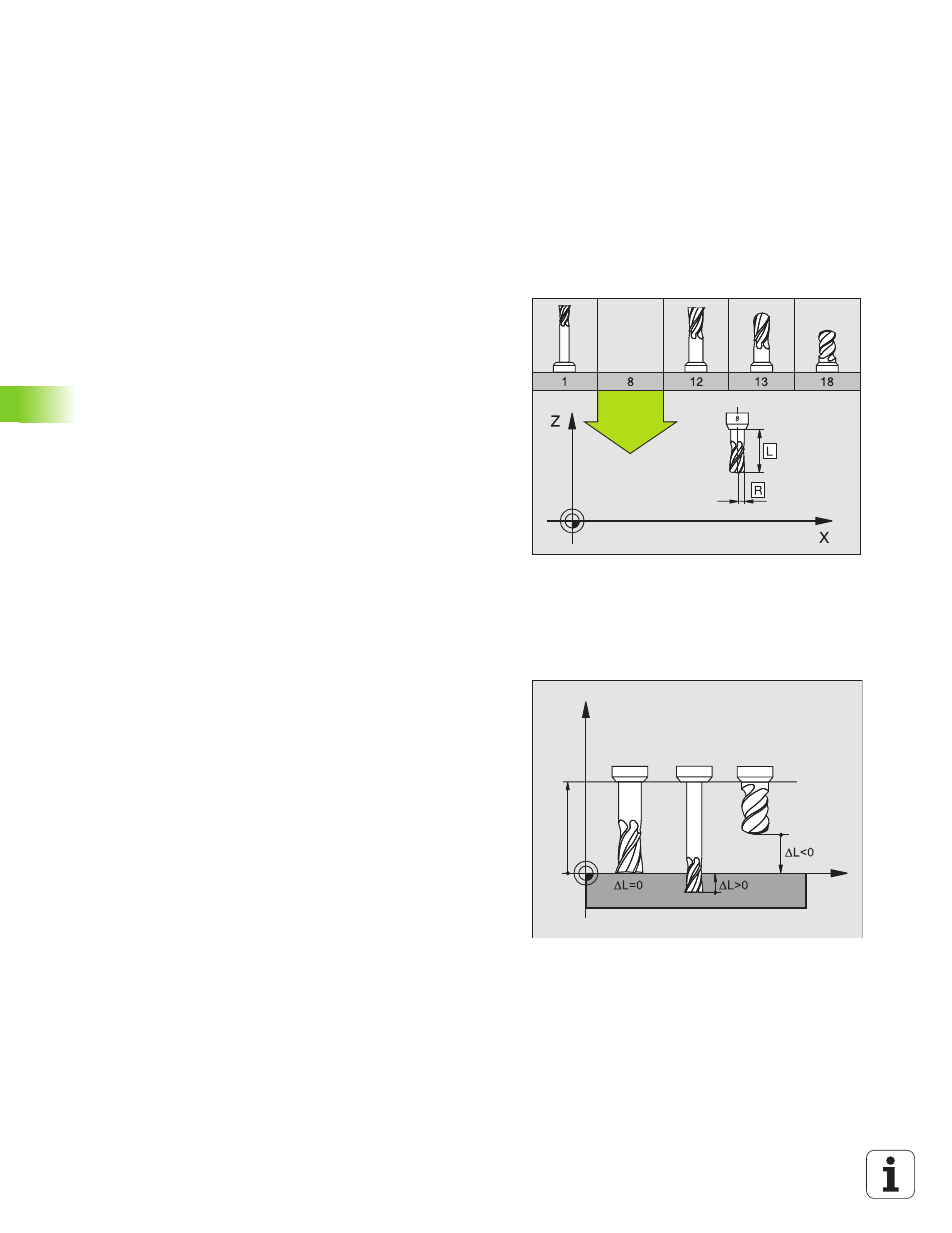2 tool data, Requirements for tool compensation, Tool numbers and tool names – HEIDENHAIN TNC 320 (340 551-01) User Manual
Page 98: Tool length l, 2 t o ol d a ta 5.2 tool data

98
5 Programming: Tools
5.2 T
o
ol D
a
ta
5.2 Tool Data
Requirements for tool compensation
You usually program the coordinates of path contours as they are
dimensioned in the workpiece drawing. To allow the TNC to calculate
the tool center path—i.e. the tool compensation—you must also enter
the length and radius of each tool you are using.
Tool data can be entered either directly in the part program with TOOL
DEF or separately in a tool table. In a tool table, you can also enter
additional data for the specific tool. The TNC will consider all the data
entered for the tool when executing the part program.
Tool numbers and tool names
Each tool is identified by a number between 0 and 9999. If you are
working with tool tables, you can use higher numbers and you can also
enter a tool name for each tool. Tool names can have up to 16
characters.
The tool number 0 is automatically defined as the zero tool with the
length L=0 and the radius R=0. In tool tables, tool T0 should also be
defined with L=0 and R=0.
Tool length L
There are two ways to determine the tool length L:
Determining the difference between the length of the tool and
that of a zero tool L0
For the algebraic sign:
To determine the length:
8
Move the zero tool to the reference position in the tool axis
(e.g. workpiece surface with Z=0).
8
Set the datum in the tool axis to 0 (datum setting).
8
Insert the desired tool.
8
Move the tool to the same reference position as the zero tool.
8
The TNC displays the difference between the current tool and the
zero tool.
8
Enter the value in the TOOL DEF block or in the tool table by
pressing the actual-position-capture key.
Determining the length L with a tool presetter
Enter the determined value directly in the TOOL DEF tool definition
block or in the tool table without further calculations.
L>L0:
The tool is longer than the zero tool
L The tool is shorter than the zero tool Z X L 0
